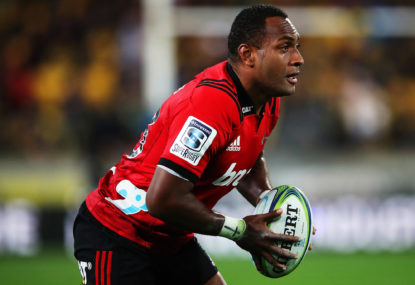The short, sharp volley of fireworks that shook Kings Park in Durban was supposed to celebrate the Sharks claiming the eighth and final Super Rugby playoff spot.
But based on the muddling match that had just unfolded, perhaps it was more about waking the crowd to tell them it was time to go home?
As happy as Sharks fans might have been with the outcome – and there are three Australian teams who today who know exactly how hard it is to make the finals – it is doubtful than any would have rushed to book a flight to Christchurch to support their team through a finals campaign.
The fat lady may not yet have sung, but the trophy engraver has his tool kit out and has already stenciled in the word that everybody associates with Super Rugby…
‘TMO’
No, just kidding… ‘Crusaders’!
On the evidence of recent weeks, there is no side capable of beating the Crusaders at home – they are beautifully balanced, with scoring power forward and back, a rock-solid set piece, composure in the midfield and a playmaker in Richie Mo’unga who has grown in stature and confidence this season.
While 54-17 suggests otherwise, it is not as if the Blues played poorly, they just had no answer to the Crusaders’ relentless offload and support game. And as excited as Wallabies fans might be to see Tevita Kuridrani storm back into form against the Waratahs, the strong running and decision making of centre Jack Goodhue had all the hallmarks of Conrad Smith at his best.
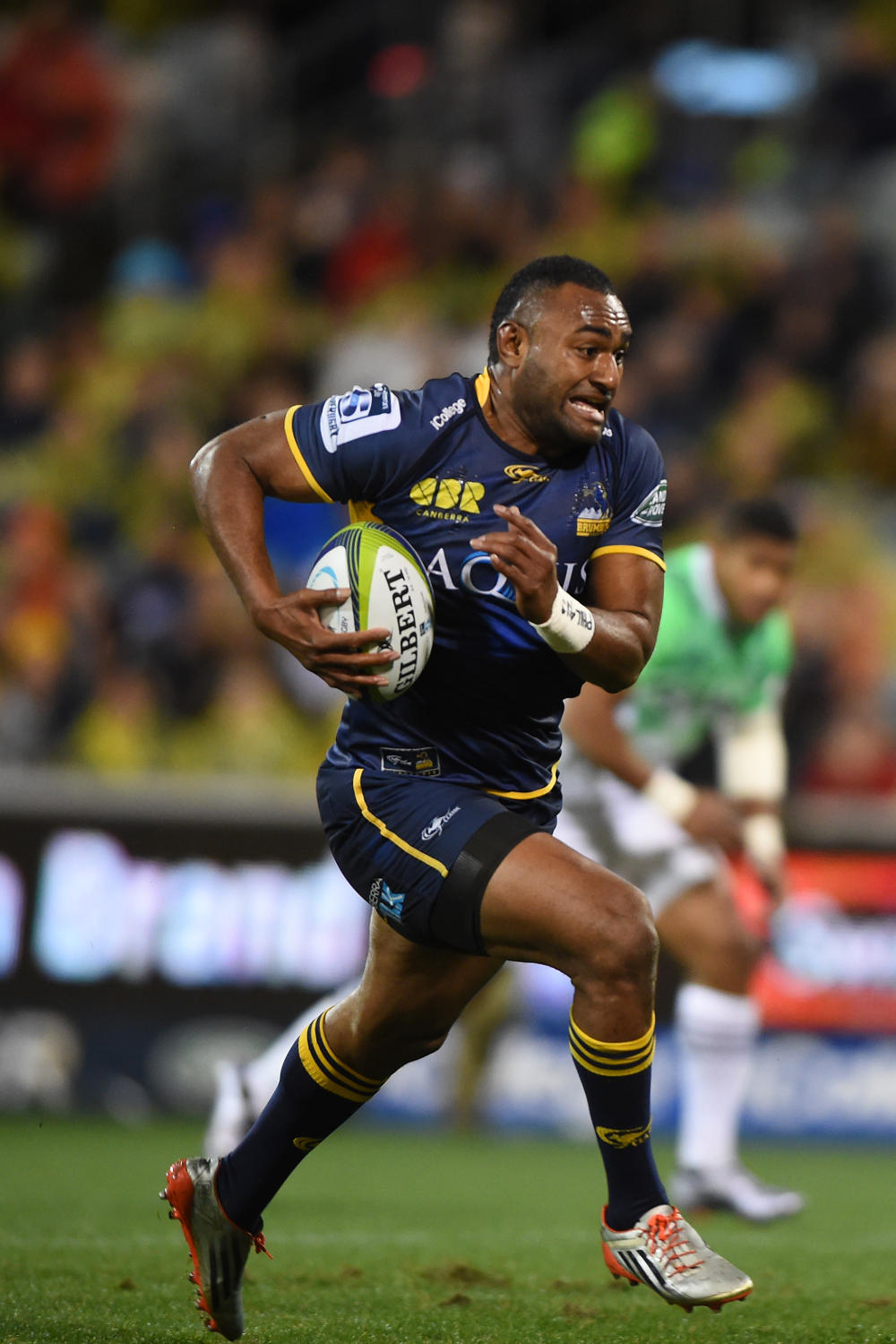
Tevita Kuridrani of the Brumbies (AAP Image/Dean Lewins)
Perhaps it is only the Chiefs who potentially stand in the Crusaders’ way, although they must first repeat the dose against the Hurricanes, this time in Wellington.
They will do so without Jonny Fa’auli who, I expect, will be missed by nobody, not the least the Hurricanes’ media team. If they overstepped the mark in tweeting their thoughts about Fa’auli’s crude shoulder charge on Wes Goosen, they did so understandably.
Despite home advantage, I suspect that the Hurricanes are in a spot of bother. The Chiefs can match them at their strength – scoring power – courtesy of the silky running of Shaun Stevenson and Solomona Alaimalo, and the return of Damian McKenzie, and have more grunt and cohesion up front.
The Lions claimed second spot on the ladder, and with it a potential run of two home finals before the big dance. Their 38-12 win against the Bulls sounds impressive enough, but it was largely built around referee Marius Van der Westhuizen stepping back and allowing free-for-all mayhem at the breakdown, that played into the hands of Malcolm Marx and Kwagga Smith.
On another day, in a final with, perhaps Angus Gardner on the whistle, they may not be allowed the same latitude. The Lions fell short of the main prize last year, even with a charmed home run. They look to be a 15 per cent inferior side this season, so it is hard to see how they can win it.
The Bulls shot out of the blocks early to a 12-0 lead, but their season fizzled out in a blaze of penalties – many for poor discipline. In terms of their mode of play, they are a side in transition and – not unlike the Australian non-finalists – there is every reason to think that more familiarity with each other and their new game plan, should deliver further progress up the ladder next year.
The Highlanders were big winners out of the weekend, resting many of their Test stars and still eking out a victory, before learning that they only need to travel to Sydney instead of Johannesburg.
Their match against the Rebels was a highly entertaining affair, if punctuated by a high error rate in the first half. The difference between the two sides was precisely what I believe remains a critical difference between New Zealand and Australian rugby – the ability to transition quickly from defence to attack, and score long-range tries on the counter.
The Rebels, off the back of a smashing 29-point performance by Reece Hodge, led for much of the match, but found themselves chasing a win in the final seconds. That they conjured their best backline move of the match under such intense pressure was a real credit to them, but just as Jack Maddocks straightened on his final thrust towards the try-line, Waisake Naholo homed in on his ribs with a thundering tackle, and it was all over.
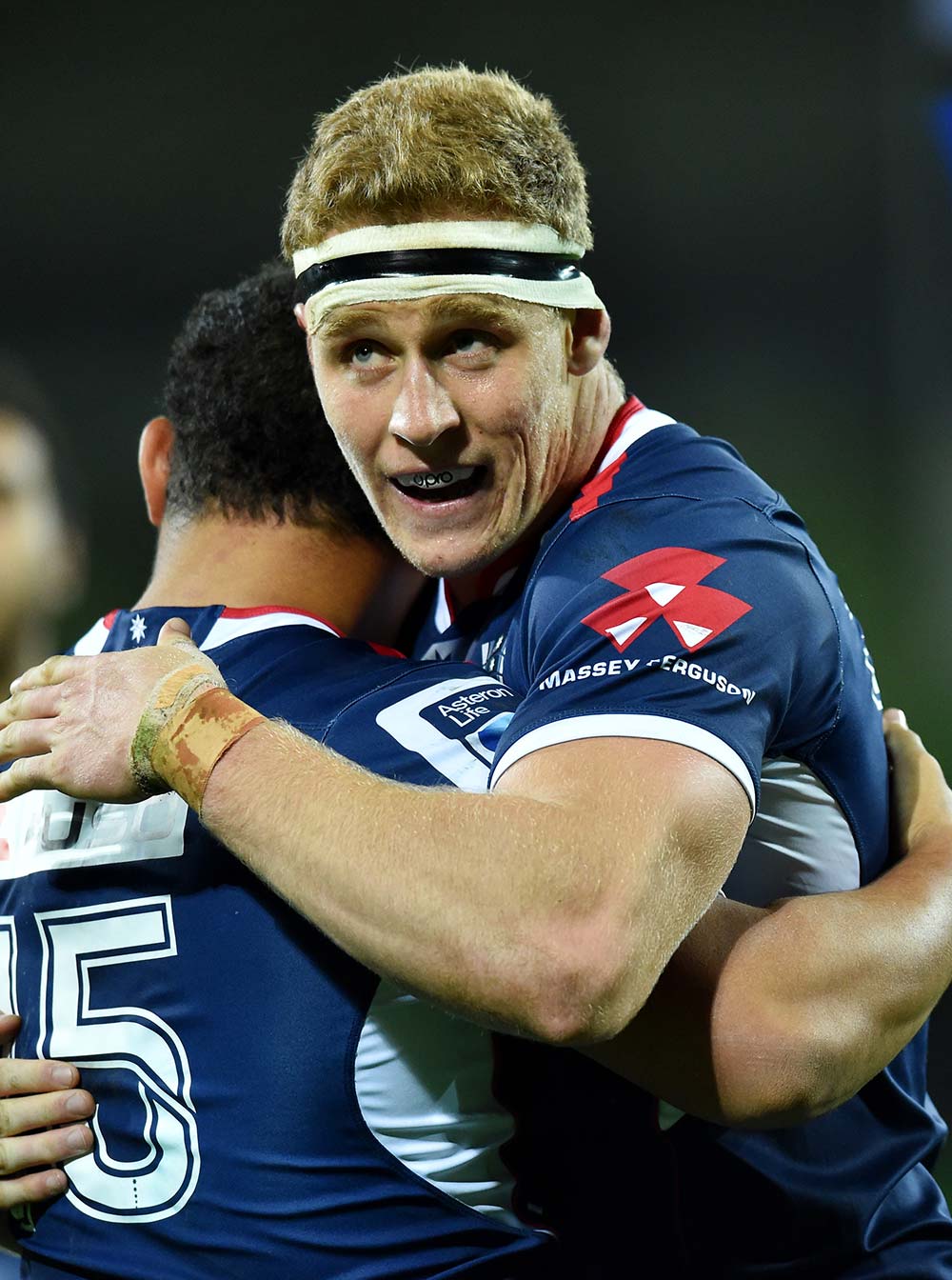
Reece Hodge of the Rebels (AAP Image/Tracey Nearmy)
Coach Dave Wessels is the type of character who will already be looking forward to next season with optimism and high enthusiasm – with good reason. But if he affords himself a moment of reflection, and excuses an observation made with the benefit of hindsight, it was the decision to turn down an after-the-siren penalty against the Jaguares, to chase a win instead of a certain draw, which cost them the one ladder point that would have seen them safe as finalists.
There was a view after the Waratahs loss 41-30 to the Brumbies, that, in slipping from second to third on the overall ladder, they had given away potential home ground advantage beyond the first elimination final against the Highlanders. This undersells the Brumbies, who took the game to their hosts in what was a commanding final performance for 2018.
The Brumbies got their tactics spot on, identifying how the Waratahs were too widely spaced in midfield, and were without Michael Hooper to mop up the inevitable breaches.
It was important for rookie coach Dan McKellar to recover what had been an ordinary season, but recover it they have, their final five weeks as impressive as any side in the competition, bar the Crusaders.
As for the Waratahs, who knows, perhaps there were some minds sub-consciously looking too far ahead, and when a defender as good as Nick Phipps starts copying Kurtley Beale in offering a single arm as an excuse for a tackle, you know that the mental side isn’t quite where it needs to be.
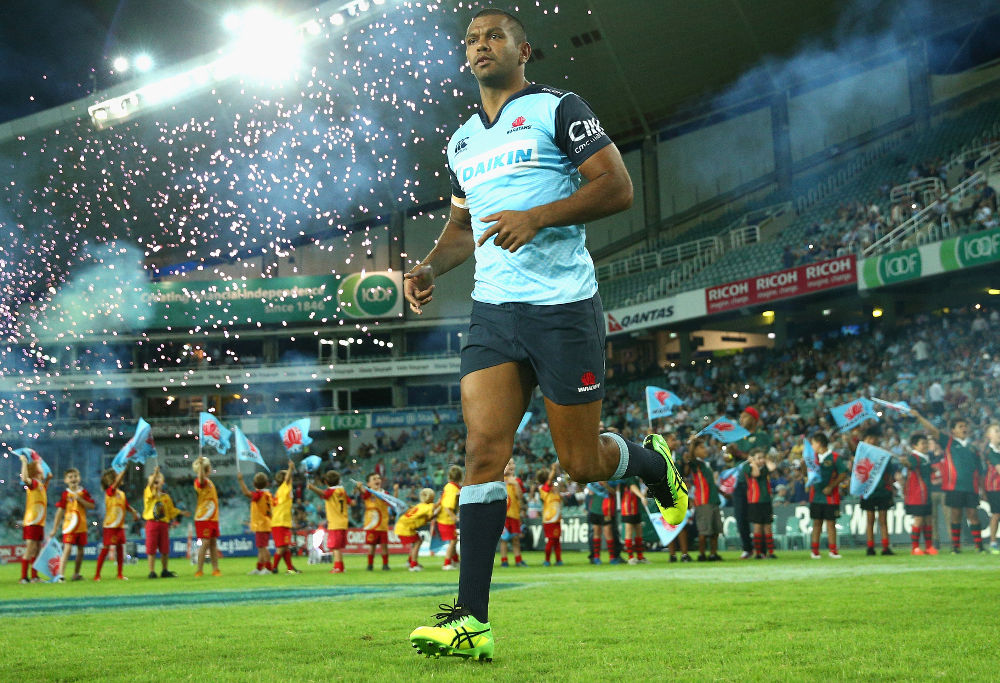
Kurtley Beale is ready to make an impact for the Waratahs. (Photo by Cameron Spencer/Getty Images)
The warning signs were already there – against the Rebels and in the first half against the Sunwolves – that this side is a different beast without Hooper leading from the front, and it must be a concern for fans that the skipper will be absent for at least another week.
Another concern is their backline alignment – usually a strength, but on this occasion set too deep, so that Israel Folau was contained out wide by defenders allowed the luxury of drifting across with every Beale pass.
We already know that Foley can play square and flat to the line, so it is up to Beale this week to do the work and make the necessary adjustment. It is important that the Tahs make use of Taqele Naiyarovoro as an attacking weapon, but at this level, simply drifting across the field and shoveling the ball on to him is not enough.
Oh and some precision at lineout won’t go astray either.
[latest_videos_strip category=”rugby” name=”Rugby”]
The Jaguares ended up with a relatively short commute to Johannesburg for their final – not a bad result for them for their first finals campaign. They showed their hand before the match against the Sharks, resting a number of key internationals, and playing as if they never really expected to win.
Instead, they will look to rediscover their mid-season magic against the Lions. Pundits have been suggesting for a while that they will be a factor in the finals, and if they can handle the heightened emotion, maintain their discipline and keep Marx in check, they have enough speed and scoring power to trouble the Lions.
Ironically, the only match from the final round not to feature a finalist turned out to be the most controversial, with the Sunwolves’ Ed Quirk, sent off for what was variously described as a “love tap”, “massage” and “facial” on Reds’ playmaker Hamish Stewart.
The official line from TMO Damien Mitchelmore and referee Ben O’Keeffe, was that Quirk pinned Stewart to the ground, where he was defenceless, and punched him with a “clear, closed fist” – which, taken in isolation, is hard to argue against.
Where the officials got it wrong however was to incorrectly assess the level of force as ‘high impact’ – thus a red card was the wrong sanction.
What followed was a predictable outpouring of outrage, Reds’ coach Brad Thorn leading the posse, claiming that with a five-eighth on the ground, Quirk was only doing what he “was supposed to do”.
Thorn makes a strong point in claiming that red cards should be reserved only for the most serious transgressions – of which Quirk’s was clearly not – but he and others like Sunwolves captain Willie Britz do the cause no good by indulging in overreach and hyperbole.
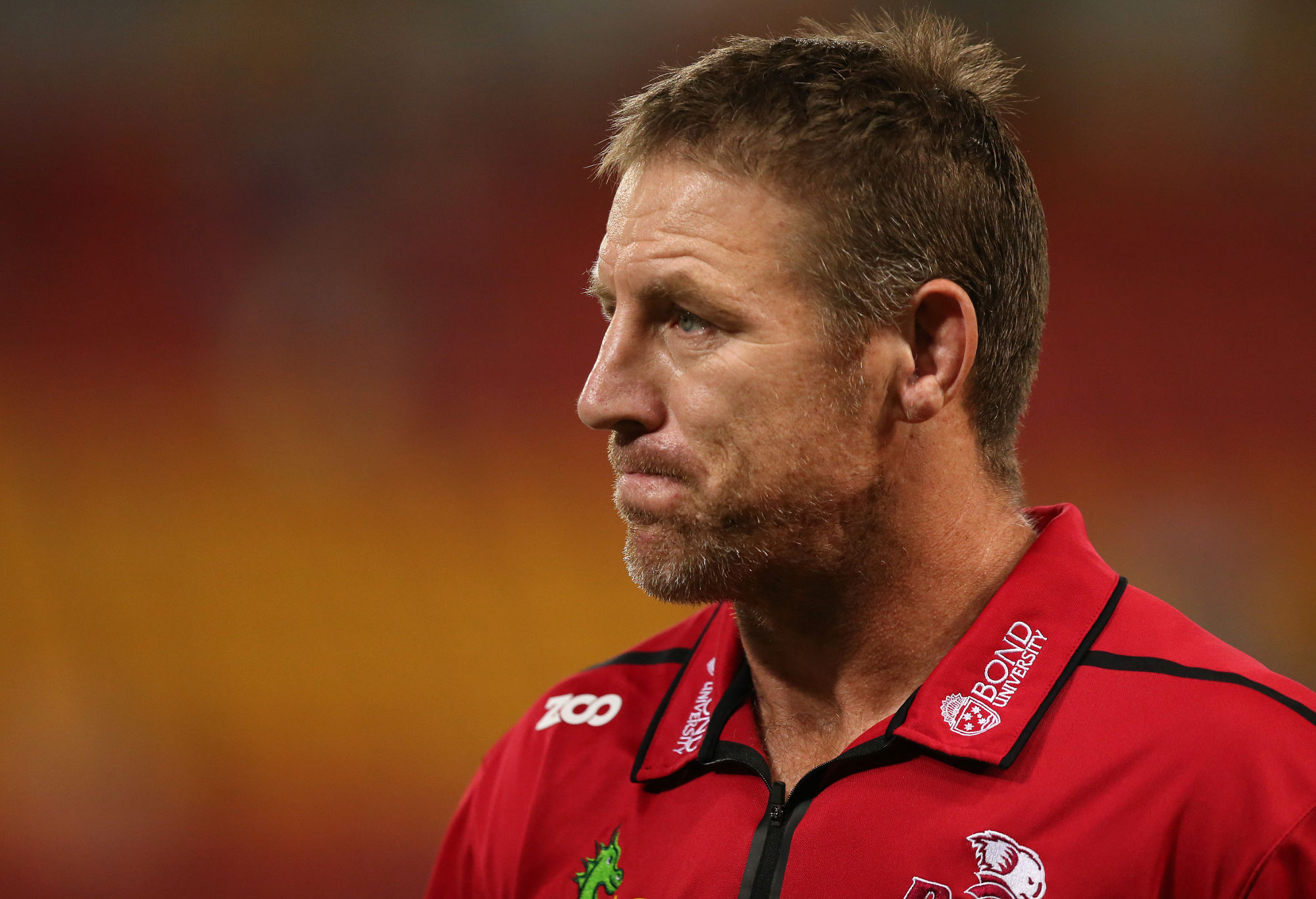
Brad Thorn has copped some criticism, but the Reds look a better side in 2018 (Photo by Jono Searle/Getty Images)
Britz, for example, said afterwards; “You make a good, proper hit and you get a red card for it. I’ve spoken to a lot of old players as well, the game’s gone soft.”
He wasn’t asked specifically how Quirk’s punch, or Semisi Masarewa’s tip-tackle last week on a player without the ball, constituted a “good, proper hit”. Nor was Thorn asked what might happen to the game if all 30 players in every match did the same thing as Quirk, with impunity and without penalty.
The game would quickly degenerate into anarchy, and it is a nonsense to suggest that there are now, in 2018, any circumstances where it is acceptable to punch a defenceless opponent in the face without there being consequences.
The ‘all the fans and players want is consistency’ theme also got a lengthy run in the aftermath, particularly after Caleb Timu was issued with a yellow card for driving with his shoulder into a player on the ground – which was later assessed as meeting the red card threshold by SANZAAR’s citing commissioner.
The obvious point to be made here is that the notion that ‘consistency’ can be applied across incidents that are inherently different, is flawed. What people really mean is that – in a general sense – precedents are important and that the processes under which referees and TMO’s operate under should be transparent and consistent.
It is true that World Rugby and SANZAAR have work to do in this regard. In the meantime, the best thing they could do for the game is to better communicate their philosophy and objectives, which clearly aren’t understood by a large number of fans and commentators.
Rugby, like most major contact sports, has a serious, underlying concussion problem. The first lawsuits from ex-players affected by brain injury are now underway, and rugby does not have the financial reserves that an organisation like the NFL has, for example, to make the problem ‘go away’.
Improved protocols and player management are part of the solution, and there will always be an implied acceptance of risk for any player who takes the field. Yes, it is vitally important that the physicality that Thorn describes as the ‘soul’ of rugby is maintained.
But there is a line that is being conveniently overlooked. Rugby’s administrators must not only be seen to be protecting players, they must actually do so, via laws and appropriate officiating and sanctions.
Protection not just from snipers of the Fa’auli variety, but, if Thorn and Britz, and Reds captain Scott Higginbotham, (who used his post-match interview to renew his claim for victim status for his round one red card), are anything to go by, protection from themselves.
Put simply, play rugby as hard as you can – just like Naholo on Maddocks, or how a rampaging Michael Leitch was sat on his arse by a Reds’ welcoming committee – just don’t tip an opponent on their head, drive a shoulder into their head or punch a pinned man in the face.
That’s not too much to ask is it?





























































































